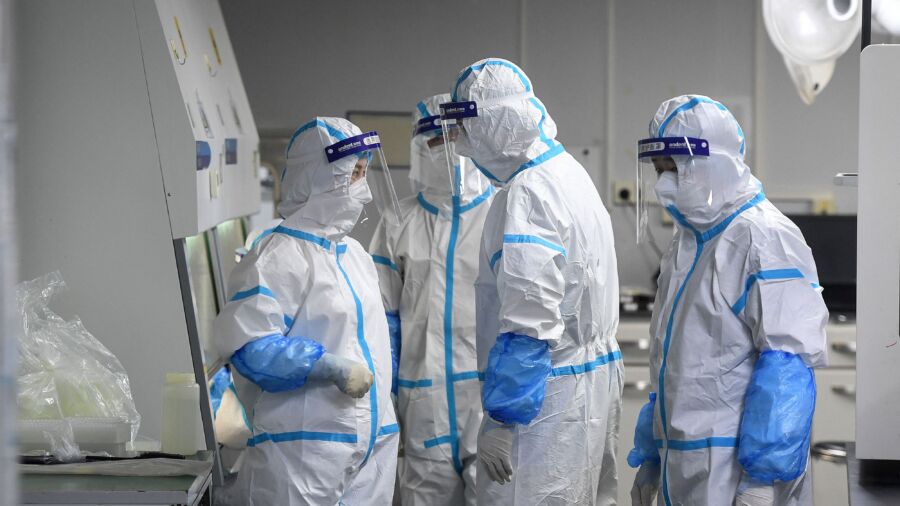Emails obtained through the Freedom Information Act show that U.S. Health Officials opposed a proposed inspection of Wuhan’s coronavirus labs by international scientists, U.S. Right to Know reported.
The emails (pdf) show that the U.S. Department of State requested the Department of Health and Human Services (HHS) to co-sign a letter requesting the Chinese Communist Party (CCP) to “authorize and facilitate a visit of international scientists and public health experts to Wuhan.”
The purpose of the visit was worded as follows: “To exchange information with counterparts who have conducted research on coronaviruses (including the origin and characteristics of SARS-CoV-2), examine all relevant data, and visit laboratory facilities where such research has been conducted, including the Wuhan Institute of Virology and Wuhan Center for Disease Control and Prevention labs.”
The letter was signed by then head of the State Department, Mike Pompeo, and addressed to Han Zheng, vice premier of the People’s Republic of China (PRC), and Yang Jiechi, the director of the Office of Foreign Affairs of the CCP.
The letter remains fully redacted, but from the related correspondence, it can be deduced that the goal was to investigate the potential laboratory origins of COVID-19.
The reply from HHS Secretary Alex Azar was negative. “After careful consideration, HHS respectfully declines to join the letter,” the email read.
Multiple agencies within HHS authorized the negative reply, including the National Institutes of Health (NIH), which funded high-risk gain-of-function research in Wuhan through the EcoHealth Alliance infectious diseases group.
Gain–of-function refers to research and experiments to enhance virus transmissibility and pathogenicity.
A congressional memorandum stated that Francis Collins, then director of the NIH, and Anthony Fauci, director of its infectious diseases department, “prompted” their staff to write an article to dismiss the idea that COVID-19 could have emerged from the Wuhan Institute of Virology.
The article, published in Nature Medicine, firmly stated, “Our analyses clearly show that SARS-CoV-2 is not a laboratory construct or a purposefully manipulated virus.”
The article convinced much of the media, Washington, and the medical community that the lab leak theory was a bogus “conspiracy theory.” Yet it was no secret that the “Wuhan Institute of Virology” conducted gain-of-function research on coronaviruses.
Reasons for Refusing
HHS mentioned four reasons not to sign Pompeo’s letter.
The HSS had sent a request to Chinese Health Minister Ma Xiaowei regarding virus sample sharing. The CCP had ordered Chinese labs to destroy early samples of the virus, complicating research into the virus and its origins. “We would like to ensure that line of inquiry remains open, and as such, do not wish to confuse issues by joining this letter,” the HSS stated.
Secondly, the HSS “recently ended funding to the institute that this letter is requesting access to (…) A request for a visit could be construed as opening the possibility for that funding to again be available, something we do not wish to be suggested.”
Additionally, the HSS feared that Pompeo’s request might offend the CCP and complicate the joint development of vaccines (China and the West would eventually each develop their vaccines separately).
Lastly, the HSS believed that an international inspection of the Wuhan labs was already underway following a resolution adopted by the 73rd World Health Assembly in May 2020.
However, the World Health Assembly resolution called for an investigation into “the zoonotic source of the virus”—no mention was made of investigating alleged laboratory origins of the virus.
The Wuhan lab was eventually investigated, but the CCP had final approval over who participated in the investigation. One of the investigators was Peter Daszak, president of EcoHealth Alliance, the group that partnered with the Wuhan Institute of Virology over gain-of-function research.
Unsurprisingly, the investigation concluded that a laboratory origin was “extremely unlikely.” World Health Organization director Tedros Ghebreyesus immediately embraced this conclusion.

